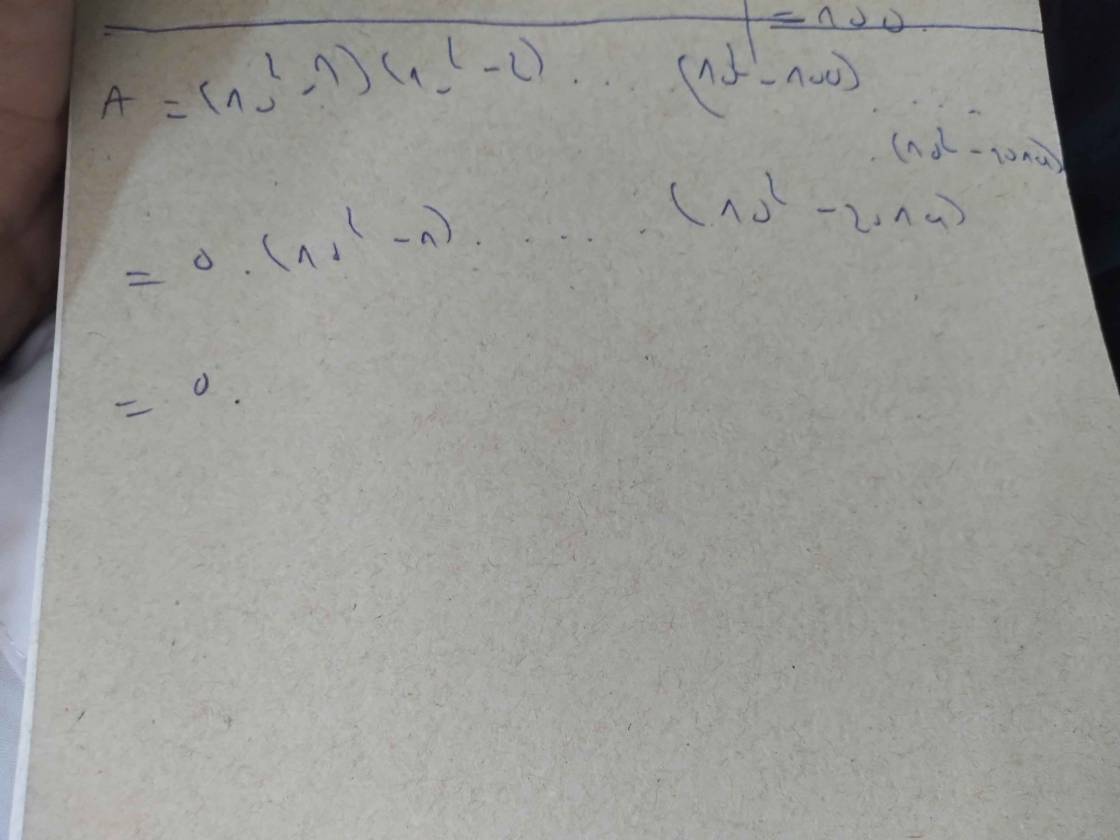2 + 10 x2
Hãy nhập câu hỏi của bạn vào đây, nếu là tài khoản VIP, bạn sẽ được ưu tiên trả lời.


6: \(-x^2y\left(xy^2-\dfrac{1}{2}xy+\dfrac{3}{4}x^2y^2\right)\)
\(=-x^3y^3+\dfrac{1}{2}x^3y^2-\dfrac{3}{4}x^4y^3\)
7: \(\dfrac{2}{3}x^2y\cdot\left(3xy-x^2+y\right)\)
\(=2x^3y^2-\dfrac{2}{3}x^4y+\dfrac{2}{3}x^2y^2\)
8: \(-\dfrac{1}{2}xy\left(4x^3-5xy+2x\right)\)
\(=-2x^4y+\dfrac{5}{2}x^2y^2-x^2y\)
9: \(2x^2\left(x^2+3x+\dfrac{1}{2}\right)=2x^4+6x^3+x^2\)
10: \(-\dfrac{3}{2}x^4y^2\left(6x^4-\dfrac{10}{9}x^2y^3-y^5\right)\)
\(=-9x^8y^2+\dfrac{5}{3}x^6y^5+\dfrac{3}{2}x^4y^7\)
11: \(\dfrac{2}{3}x^3\left(x+x^2-\dfrac{3}{4}x^5\right)=\dfrac{2}{3}x^3+\dfrac{2}{3}x^5-\dfrac{1}{2}x^8\)
12: \(2xy^2\left(xy+3x^2y-\dfrac{2}{3}xy^3\right)=2x^2y^3+6x^3y^3-\dfrac{4}{3}x^2y^5\)
13: \(3x\left(2x^3-\dfrac{1}{3}x^2-4x\right)=6x^4-x^3-12x^2\)


Đáp án B
Ta có : 2 x 3 + 2 x 2 - 3 x + 10 = 2 x 3 + x 2 – 10
⇔ 2 x 3 + 2 x 2 - 3 x + 10 - 2 x 3 - x 2 + 10 = 0
⇔ x 2 – 3 x + 20 = 0
Phương trình trên là phương trình bậc hai một ẩn với a = 1; b = -3 và c = 20.

a) Ta có: \(\left(x^2-5x\right)^2+10\left(x^2-5x\right)+24=0\)
\(\Leftrightarrow\left(x^2-5x\right)^2+4\left(x^2-5x\right)+6\left(x^2-5x\right)+24=0\)
\(\Leftrightarrow\left(x^2-5x\right)\left(x^2-5x+4\right)+6\left(x^2-5x+4\right)=0\)
\(\Leftrightarrow\left(x^2-5x+6\right)\left(x^2-5x+4\right)=0\)
\(\Leftrightarrow\left(x^2-2x-3x+6\right)\left(x^2-x-4x+4\right)=0\)
\(\Leftrightarrow\left[x\left(x-2\right)-3\left(x-2\right)\right]\left[x\left(x-1\right)-4\left(x-1\right)\right]=0\)
\(\Leftrightarrow\left(x-1\right)\left(x-2\right)\left(x-3\right)\left(x-4\right)=0\)
\(\Leftrightarrow\left[{}\begin{matrix}x-1=0\\x-2=0\\x-3=0\\x-4=0\end{matrix}\right.\Leftrightarrow\left[{}\begin{matrix}x=1\\x=2\\x=3\\x=4\end{matrix}\right.\)
Vậy: S={1;2;3;4}
b) Ta có: \(\left(2x+1\right)^2-2x-1=2\)
\(\Leftrightarrow\left(2x+1\right)^2-\left(2x+1\right)-2=0\)
\(\Leftrightarrow\left(2x+1\right)^2-2\left(2x+1\right)+\left(2x+1\right)-2=0\)
\(\Leftrightarrow\left(2x+1\right)\left(2x+1-2\right)+\left(2x+1-2\right)=0\)
\(\Leftrightarrow\left(2x+1+1\right)\left(2x-1\right)=0\)
\(\Leftrightarrow\left(2x+2\right)\left(2x-1\right)=0\)
\(\Leftrightarrow\left[{}\begin{matrix}2x+2=0\\2x-1=0\end{matrix}\right.\Leftrightarrow\left[{}\begin{matrix}2x=-2\\2x=1\end{matrix}\right.\Leftrightarrow\left[{}\begin{matrix}x=-1\\x=\dfrac{1}{2}\end{matrix}\right.\)
Vậy: \(S=\left\{-1;\dfrac{1}{2}\right\}\)
c) Ta có: \(x\left(x-1\right)\left(x^2-x+1\right)-6=0\)
\(\Leftrightarrow x\left(x^3-x^2+x-x^2+x-1\right)-6=0\)
\(\Leftrightarrow x\left(x^3-2x^2+2x-1\right)-6=0\)
\(\Leftrightarrow x^4-2x^3+2x^2-x-6=0\)
\(\Leftrightarrow x^4-2x^3+2x^2-4x+3x-6=0\)
\(\Leftrightarrow x^3\left(x-2\right)+2x\left(x-2\right)+3\left(x-2\right)=0\)
\(\Leftrightarrow\left(x-2\right)\left(x^3+2x+3\right)=0\)
\(\Leftrightarrow\left(x-2\right)\left(x^3-x+3x+3\right)=0\)
\(\Leftrightarrow\left(x-2\right)\left[x\left(x^2-1\right)+3\left(x+1\right)\right]=0\)
\(\Leftrightarrow\left(x-2\right)\left[x\left(x-1\right)\left(x+1\right)+3\left(x+1\right)\right]=0\)
\(\Leftrightarrow\left(x-2\right)\left(x+1\right)\left(x^2-x+3\right)=0\)
mà \(x^2-x+3>0\forall x\)
nên (x-2)(x+1)=0
\(\Leftrightarrow\left[{}\begin{matrix}x-2=0\\x+1=0\end{matrix}\right.\Leftrightarrow\left[{}\begin{matrix}x=2\\x=-1\end{matrix}\right.\)
Vậy: S={2;-1}
d) Ta có: \(\left(x^2+1\right)^2+3x\left(x^2+1\right)+2x^2=0\)
\(\Leftrightarrow\left(x^2+1\right)^2+2x\left(x^2+1\right)+x\left(x^2+1\right)+2x^2=0\)
\(\Leftrightarrow\left(x^2+1\right)\left(x^2+1+2x\right)+x\left(x^2+1+2x\right)=0\)
\(\Leftrightarrow\left(x+1\right)^2\cdot\left(x^2+x+1\right)=0\)
mà \(x^2+x+1>0\forall x\)
nên x+1=0
hay x=-1
Vậy: S={-1}

\(a,\Rightarrow\left(2x-5\right)^2+2\left(2x-5\right)\left(x+2\right)+\left(x+2\right)^2=0\\ \Rightarrow\left(2x-5+x+2\right)^2=0\\ \Rightarrow3x-3=0\\ \Rightarrow x=1\\ b,\Rightarrow9-\left(x^2-5x\right)^2=9\\ \Rightarrow x^2-5x=0\\ \Rightarrow x\left(x-5\right)=0\Rightarrow\left[{}\begin{matrix}x=0\\x=5\end{matrix}\right.\)

a) Khi \(m=1\) thì pt đã cho trở thành \(x^2-2x-10=0\) (*)
pt (*) có \(\Delta'=\left(-1\right)^2-\left(-10\right)=11>0\)
Do đó (*) có 2 nghiệm phân biệt \(\left[{}\begin{matrix}x_1=\dfrac{-\left(-1\right)+\sqrt{11}}{1}=1+\sqrt{11}\\x_2=\dfrac{-\left(-1\right)-\sqrt{11}}{1}=1-\sqrt{11}\end{matrix}\right.\)
b) Xét pt đã cho \(x^2-mx-10=0\) \(\left(a=1;b=-m;c=-10\right)\)
Nhận thấy \(ac=1\left(-10\right)=-10< 0\) nên pt đã cho luôn có 2 nghiệm phân biệt \(x_1,x_2\).
Áp dụng hệ thức Vi-ét, ta có \(\left\{{}\begin{matrix}x_1+x_2=-\dfrac{-m}{1}=m\\x_1x_2=\dfrac{-10}{1}=-10\end{matrix}\right.\)
Ta có \(x_1^2+x_2^2=29\Leftrightarrow\left(x_1+x_2\right)^2-2x_1x_2=29\Leftrightarrow m^2-2\left(-10\right)=29\)\(\Leftrightarrow m^2+20=29\Leftrightarrow m^2=9\Leftrightarrow m=\pm3\)
Vậy để pt đã cho có 2 nghiệm phân biệt thỏa mãn đề bài thì \(m=\pm3\)

a: Đặt \(a=x^2+x\)
Phương trình ban đầu sẽ trở thành \(a^2+4a-12=0\)
=>\(a^2+6a-2a-12=0\)
=>a(a+6)-2(a+6)=0
=>(a+6)(a-2)=0
=>\(\left(x^2+x+6\right)\left(x^2+x-2\right)=0\)
=>\(x^2+x-2=0\)(Vì \(x^2+x+6=\left(x+\dfrac{1}{2}\right)^2+\dfrac{23}{4}>0\forall x\))
=>\(\left(x+2\right)\left(x-1\right)=0\)
=>\(\left[{}\begin{matrix}x+2=0\\x-1=0\end{matrix}\right.\Leftrightarrow\left[{}\begin{matrix}x=-2\\x=1\end{matrix}\right.\)
b:
Sửa đề: \(\left(x^2+2x+3\right)^2-9\left(x^2+2x+3\right)+18=0\)
Đặt \(b=x^2+2x+3\)
Phương trình ban đầu sẽ trở thành \(b^2-9b+18=0\)
=>\(b^2-3b-6b+18=0\)
=>b(b-3)-6(b-3)=0
=>(b-3)(b-6)=0
=>\(\left(x^2+2x+3-3\right)\left(x^2+2x+3-6\right)=0\)
=>\(\left(x^2+2x\right)\left(x^2+2x-3\right)=0\)
=>\(x\left(x+2\right)\left(x+3\right)\left(x-1\right)=0\)
=>\(\left[{}\begin{matrix}x=0\\x+2=0\\x+3=0\\x-1=0\end{matrix}\right.\Leftrightarrow\left[{}\begin{matrix}x=0\\x=-2\\x=-3\\x=1\end{matrix}\right.\)
c: \(\left(x-2\right)\left(x+2\right)\left(x^2-10\right)=72\)
=>\(\left(x^2-4\right)\left(x^2-10\right)=72\)
=>\(x^4-14x^2+40-72=0\)
=>\(x^4-14x^2-32=0\)
=>\(\left(x^2-16\right)\left(x^2+2\right)=0\)
=>\(x^2-16=0\)(do x2+2>=2>0 với mọi x)
=>x2=16
=>x=4 hoặc x=-4


=2x20
=20
chúc bạn học tốt
2 + 10 x 2
= 2 + 20
= 22